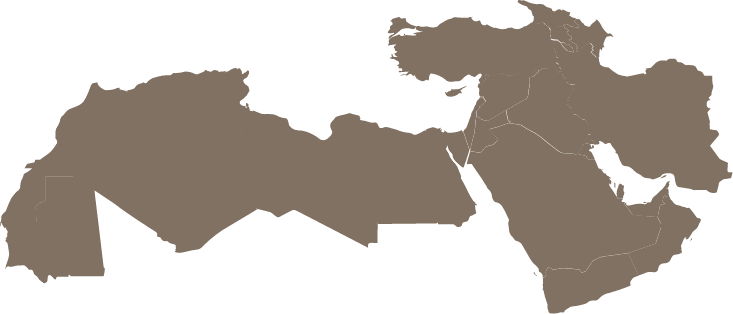From the Washington Post
By Clark Strand
founder, wholeearthgod.com
The Golden Rule ("Do unto others as you would have them do unto you") is the foundation of Christian moral teaching. But lately I've begun to wonder if that gold standard of ethical behavior really equips us for an age of global environmental concerns. Jesus teaches us to include other people in our prayers--even our enemies. But what about other species of plant and animal life? What about the atmosphere? What about the Earth?
As suggested by its color, the Golden Rule is defined primarily in terms of human commerce. Most of the examples of right conduct Jesus offers in the gospels involve the exchange of money, goods, or services. Not one addresses other species or the Earth. Does this mean that Jesus was as clueless as every other Homo sapiens on the planet when it comes to grasping ecological truths? If Jesus were here today, would he too live in denial of the coming environmental collapse?
A growing number of environmentally-concerned Christians believe the answer is no. Were Jesus with us today, they tell us, he would replace the Golden Rule with the Green Rule: "Do unto the Earth as you would have the Earth do unto you."
Unfortunately, that rule still reflects a dangerous bias. It still uses human welfare as the yardstick by which we measure what is good for Nature, and that simply doesn't work.
What is good for human beings (all 6.8 billion of us) isn't necessarily good for the planet. Current projections indicate that one half of all plant and animal species on Earth will likely become extinct by century's end as a result of climate change and other anthropogenic factors -- an inevitability which led MIT professor Stephen Meyer to ask in his 2006 book "The End of the Wild:" "What is the essence of our own morality if it fails to encompass most of life on Earth?"
For the past three millennia, the essence of human morality has been expressed primarily in terms of how we treat one another. Consequently, some version of the Golden Rule appears in virtually all of the world's major religious traditions, making it the bedrock of human ethical concern. Unfortunately for us, however, it is not the bedrock of our biological existence on Earth.
The foundation for life on Earth is now just what it always has been -- not how we treat others of our own species, but the planetary ecosystem itself. That system provides the air we breathe, the food and water we consume, and -- at present -- a range of temperatures conducive to our continued survival. For millennia now, we've lived in our heads as a species, convinced as one that nature would give way indefinitely before the advance of human ambition and desire. Our bodies tell another story. We are wholly dependent on the Earth and its bounty for our continued existence. Eliminate one half of that bounty, and pretty soon the Golden Rule, for all the beauty and nobility of its conception, won't mean a thing. Or at least not for this world -- presumably, those who believe in heaven can still follow it in hopes of the world to come.
Even the "Green Rule" is too timid a fix for the problems we face now. It isn't just that the eco version contributes to our collective delusion of knowing how best to manage the Earth's energies and resources . . . provided we think empathetically, that is. A bigger problem is its conception as a "rule." Reality would be a better word to describe our relationship to the planet and its diversity of plant and animal life. A rule may be bent...or broken...or observed in some instances but not in others. Its very nature derives from the fact that we can elect to observe it or not. But there is no opt-out when it comes to the reality of Nature. There is no way we are going to live well or for long in a world where Nature has been cut in half.
Would Jesus have understood a "Green Reality" which says "As we do to the Earth, we do to ourselves"? I believe he would. The word "golden" appears nowhere in the gospels. Nor does "rule." Jesus' only comment on his famous maxim ("for this is the law and the prophets") suggests that in his mind it was simply everything -- a complete portrait of life and the world, rather than a simple plug-in prescription for what one was to do to others, or refrain from doing.
At its most profound level, Jesus' central commandment is nothing less than a description of reality itself -- the portrait of a working ecosystem. As you treat others, you treat yourself. As you forgive others, you are forgiven. "As you do unto the least of these, so have you done unto me." Everything is inter-related. Not one of us exists independently or alone. That is the "Green Reality" Jesus would surely teach if he were with us again today. "What would Jesus do?" It's the wrong question for the age head. The real question is, How would he think? And the answer is BIG . . . and for the long term.
Assuming that Jesus' intention isn't to save the few and leave the rest behind -- including house sparrows, lost sheep, and lilies of the field -- he'd have a way of looking at things that would serve to guide us on the long green road ahead. It's painful to think of Jesus coming back to find that half of the plants and animals he knew intimately and referred to constantly in his teachings had simply disappeared. It's hard to imagine that he wouldn't want to know what happened to them, and why. Or that he wouldn't have a teaching on how to protect those that remained.
